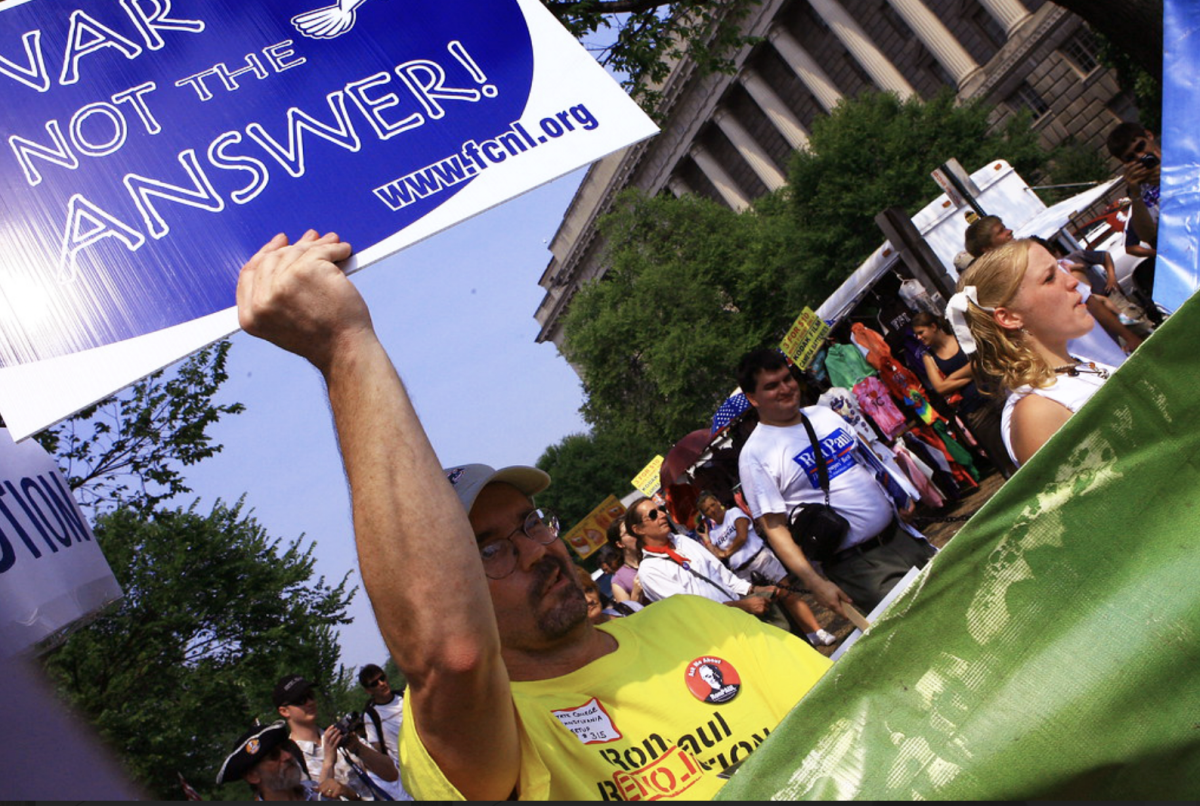The escalation of the Israel–Hamas war has sparked conversation and debate amongst Sidwell students. Club meetings, Meeting for Worship, and social media have served as platforms for many to express their points of view on this divisive topic, which has proved difficult for many students and members of the administration to approach thus far.
Sidwell Friends Head of School Bryan Garman said he wishes for a peaceful resolution to the conflict, stating in an all-school email, “Let’s do our best to seek solutions that promote diplomacy, that seek a peace based not simply on cease-fire, but on securing justice and dignity for all.”
Garman added that several community members have been affected by the attacks and urged students and staff to “take care of one another in this unsettling moment.” Junior Asher Sedwick agrees that the community must hold in the light everyone with friends or family members impacted by the conflict, whether Israeli or Palestinian.
Sidwell has provided counselor support to students and held an all-school meeting addressing the topic.
In an all-school email, Middle East North Africa Club (MENA) heads Nasma Doyle and Sama Jahmila AlBanna-Levy said the entire Sidwell community should give those affected their support “no matter their religious or political affiliation.” Doyle and AlBanna-Levy added that many members of the Sidwell community lack an understanding of Palestinian struggles in the region.
“We are firm believers that peace, what we all strive for as a Quaker community, may only be formed through justice for [the Palestinians] who have been oppressed,” Doyle and AlBanna-Levy said in an all-school email.
The MENA heads encouraged students to “be very conscious about where [they] get [their] news on this topic” and to “go beyond the Instagram story posts.”
Jewish Student Union (JSU) head Margot Wheeler expressed a similar frustration with the sources many students use for information on the issue, saying in a written statement that many “rely on social media posts and are therefore susceptible to propaganda.” Wheeler added that much of the content on social media platforms “can be incredibly biased or completely false news.”
Fellow JSU head Elie Ravitz-Basser explained that many members of the Sidwell community are “inexorably linked to the tragedy that was caused by Hamas in both Gaza and Israel and therefore have strong opinions on the topic,” which has contributed to its divisive nature. Wheeler also expresses disappointment that many who are not personally connected to the conflict are staying silent: “The silence from students who do not feel directly affected by these attacks is frankly very upsetting.”
Reacting to Garman’s initial email regarding the conflict, Wheeler appreciated “the promptness of his response” and “use of the words ‘terror attacks’” in reference to Hamas’ actions. However, she also commented that “some of his language attempts to placate everyone and as a result, it almost legitimizes the use of terrorism in Israel, particularly when he wrote ‘No matter how sad, angry, or anxious we might feel, let’s agree that we will neither disparage nor discriminate against those in our community who hold perspectives, opinions, and identities that might differ from our own.’ Although everyone is entitled to their own opinion about the Palestinian–Israeli conflict, as a school, we cannot condone “opinions” on terrorism.” After Garman’s meeting with the school on Oct. 23, though, Wheeler expressed her approval of his statement: “I appreciate how he made clear that any expressed support of Hamas or hate speech in any way is harassment.” She mentioned she had been “worried he wasn’t going to firmly make that clear” and was grateful he emphasized that point. Wheeler concluded by saying, “supporting Israel in the face of terrorism does not mean you stand wholeheartedly with the Israeli government throughout the whole conflict.”
With many students personally connected to this emotionally charged conflict, the tenor of discussion within Sidwell has taken on a new tone. With the waves of propaganda and contradicting information that have come in the wake of these events, finding common ground across different points of view has become more difficult than ever for the Sidwell community










































